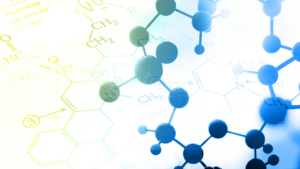High Performance Liquid Chromatography (HPLC) is an analytical technique used for separating, identifying, and quantifying components in a mixture based on their interactions with a stationary phase and a liquid mobile phase.
Principles:
- Stationary Phase: HPLC employs a stationary phase, often packed in a column, which can be a porous material (e.g., silica or polymer) where separation occurs based on various interactions (e.g., adsorption, partition, or size exclusion).
- Mobile Phase: The mobile phase, usually a solvent or a mixture of solvents, carries the sample through the column. The choice of the mobile phase influences separation efficiency.
- Separation Mechanism: Compounds in the sample interact differently with the stationary phase, leading to differential retention times, which separates the components as they travel through the column.
Applications:
- Pharmaceuticals: Widely used in drug analysis, purity assessment, drug development, and quality control of pharmaceuticals.
- Environmental Analysis: Applied for detecting and quantifying pollutants, pesticides, and other contaminants in environmental samples.
- Food and Beverage Industry: Used for assessing food quality, analyzing additives, contaminants, and determining the presence of pesticides or toxins.
- Biochemistry and Proteomics: Utilized in the separation and analysis of biomolecules, such as proteins, peptides, and nucleic acids.
Strengths:
- Versatility: HPLC can separate a wide range of compounds, including polar, non-polar, and thermally labile molecules.
- Sensitivity: Offers high sensitivity, allowing the detection of compounds at low concentrations.
- Quantitative Analysis: Provides accurate quantification of compounds through calibration curves or peak area integration.
Limitations:
- Sample Preparation: Samples need to be soluble in the chosen mobile phase, and preparation might be time-consuming.
- Column Lifespan and Maintenance: Columns can degrade over time due to sample buildup, requiring frequent replacement and maintenance.
- Complexity and Cost: High-performance instruments can be expensive to purchase, maintain, and operate. Additionally, expertise is needed for method development and optimization.
- Pressure Sensitivity: HPLC systems operate under high pressure, and this might limit the use of certain columns or require specialized equipment.
In summary, High Performance Liquid Chromatography (HPLC) is a versatile and widely used analytical technique in various industries and research fields for separating and analyzing compounds in a mixture. Its strengths include versatility, sensitivity, and quantitative analysis capabilities. However, limitations involve sample preparation, column lifespan, instrument complexity, and costs. Nonetheless, HPLC remains a fundamental tool in analytical chemistry for diverse applications in different industries.


 SEC – Size Exclusion Chromatography
SEC – Size Exclusion Chromatography